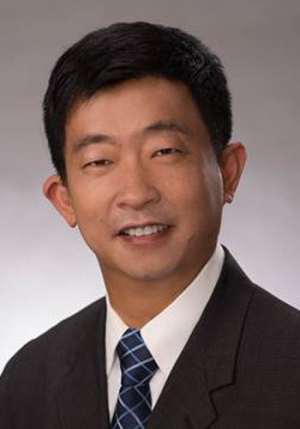An article authored by a University of Houston Cullen College of Engineering faculty member has won the Best Paper Award for an upcoming international conference hosted by the Institute for Electrical and Electronics Engineers (IEEE).
The article by Zhu Han, associate professor of electrical and computer engineering, and his Ph.D. student, Yi Huang, will be presented at the Third IEEE International Conference on Smart Grid Communications, set for Nov. 5 – 8 in Tainan City, Taiwan.
In it, Han and his co-author present an algorithm designed to allow electric utilities to quickly select the most reliable and profitable wholesale provider of electricity generated from a renewable source.
Specifically, the article is concerned with distributive renewable energy resource systems, or DRERS. DRERS can include a number of wholesale energy providers generating electricity from different sources, such as solar, wind, hydro and geothermal. The energy produced by these companies is purchased by commercial utilities, which then sell it to end-users like residential and business customers.
Renewable energy sources, however, often suffer from unknown, uneven and hard-to-predict power generation. Solar power will suffer on a cloudy day, while a wind power will drop off during calm periods, for instance.
This dynamic forces commercial power companies to choose renewable energy generators based on limited information. As a result, it can be difficult for them to select the energy provider that offers them the most stable supply of electricity to resell at the highest profit.
As Han describes it, this problem can be boiled down to one of using the information at hand (evaluating and using the electricity generator currently selected) vs. the need to gather new information (testing new providers). This, he said, is known as a "multi-armed bandit" problem.
"If you go to a casino you can choose many different slot machines, but you don’t know which has the highest payoff. So you try to cement a way to find which one pays the best," said Han.
In Han’s algorithm, the different electricity sources are the slot machines. Their performances are individually evaluated one at a time to help commercial utilities determine whether to purchase from them. Analyzing a source for an hour, for instance, can help a utility decide whether to purchase electricity from that source for the next 24 hours, Han said. What’s more, the longer a source goes untested, the greater the chance that the algorithm will select that source for evaluation. As a result, the algorithm helps ensure that the most profitable sources of electricity are utilized.
This is just the latest in a series of honors Han has received for his work. In April, he won two best paper awards at the IEEE Wireless Communications and Networking Conference, while in the summer of 2011 he and his coauthors received the IEEE’s Fred Ellersick Prize Paper Award, honoring them for the best paper in an IEEE communications magazine during the past three years.
